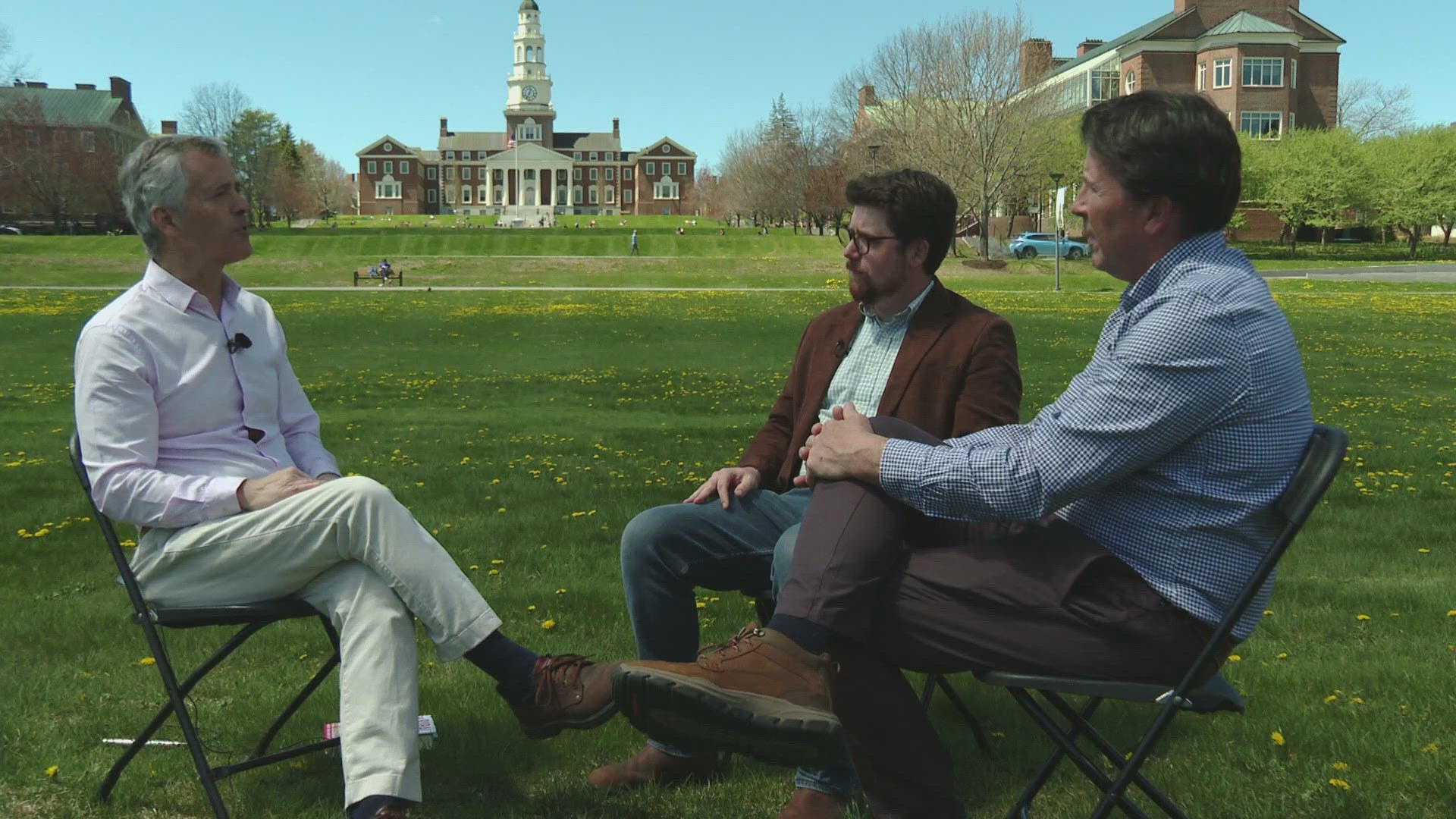WATERVILLE, Maine — You didn’t have to be a professor of government to notice during the 2020 presidential race that rural Maine was filled with Trump campaign signs, signs that all but disappeared from the landscape as you made your way into Portland, Bangor, Lewiston and other cities.
Those signs were a stark illustration of a very real political phenomenon that stretches from Maine to Alaska: the sharp political divide between rural and urban America. Simply put, out in the country, voters tend to support Republicans. In cities, they usually align with Democrats.
Daniel Shea and Nicholas Jacobs saw the concentration of those campaign signs ebb and flow as they drove from their homes in, respectively, Mount Vernon and Vassalboro to their offices at Colby College in Waterville where they are professors of government. Now they’ve taken a long, thoughtful look at the political divide in their new book, "The Rural Voter – The Politics of Place and the Disuniting of America."
To get a much deeper understanding of the divide, Shea and Jacobs say they "pulled together one of the most comprehensive and data-driven accounts of rural politics that exists." With the help of Colby students, they surveyed more than 10,000 rural voters and 4,000 nonrural residents.
So what did they find? For one thing, population density matters—a lot.
The greater the population density, Jacobs says, "the more likely you are to run into somebody on the street that’s going to vote for the Democratic Party. As soon as you leave those dense enclaves, be it a small city like Waterville, or Portland, or New York City… the more likely you are to vote for the Republican."
As they conducted their research, Shea and Jacobs discovered what they called "a shared-fate outlook" that is far stronger in rural areas than urban or suburban. "Rural voters tend to think about their own well-being—but also their community's," Shea said. "They’re very interested in the well-being of their neighbors."
A question pollsters often ask voters is, "Is the country headed in the right direction?" I posed it to Shea and Jacobs.
"I tend to be more of the optimist of the writing team," Shea said with a smile. "I think we’ve got some troubles, but I’m hoping that we’re on our way up."
Jacobs indeed has a less sunny outlook. "I don’t think anybody has the solution to overcome those divides, but I don’t think it's going to be a single solution. That’s [both] the promise and the troubling part—it’s going to take collective action. No one politician is going to get elected and solve that divide."

